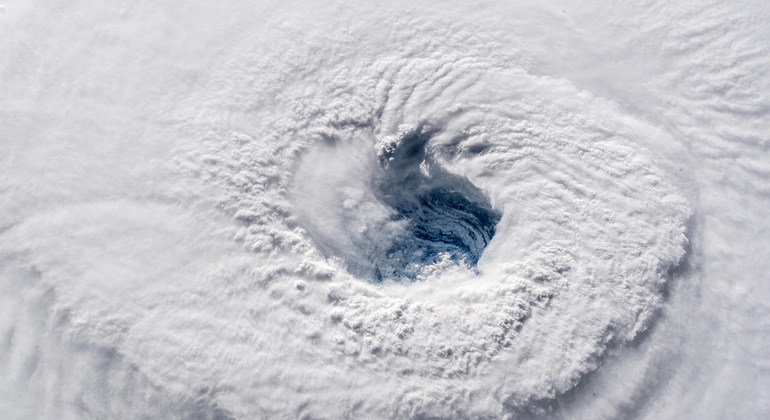Lives at risk if wireless technology demands are not held in check
Amid growing competition for radio wave space due to new wireless technologies, the World Meteorological Organization (WMO) on Thursday called on governments to protect radio frequencies allocated to potentially life-saving weather forecasting services.
Earth observation services vital to weather forecasts and long-term climate change monitoring, are having to share more and more limited bandwith, with the rollout of new communication devices, including the new 5G phone data service.
Our ability to foresee incoming disaster and destructive weather events is possible thanks to “passive sensing techniques”, used by many weather experts, the WMO explains. Sensitive instruments measure very low-power microwaves emitted from the atmosphere and the Earth’s surface.
More in our story, here.
We need to talk: UN gears up for 75th anniversary with Global Conversations
The UN announced on Thursday the launch of the “biggest-ever global conversation” about the future of the planet, as part of the events marking next year’s 75-year anniversary of the Organization.
The UN is aiming to reach the global public, via dialogues which will be held around the world, from January 2020. The objective of the dialogues is to listen to the hopes and fears of a wide range of people, to learn from their experiences, and spark discussion on ways to build a better world for all.
Feedback will be sought from all segments and generations of society, in settings as varied as classrooms, boardrooms, parliaments and village halls, but there will be a particular focus on youth, and marginalized groups. The views and ideas generated, will be presented to world leaders, and senior UN officials, at a high-profile event held in September 2020.
Here’s our story.
World is closer than ever to seeing polio disappear for good
In a “historic achievement for humanity”, two of three wild poliovirus strains have been eliminated worldwide, the World Health Organization (WHO) announced on Thursday, following the conclusion by a group of experts that WPV3, type three of the disease, has been eradicated completely.
The deadly viral disease is “very close” to disappearing altogether, with the number of affected children having dropped by 99 per cent since 1988, the UN Children’s Fund (UNICEF) announced on World Polio Day, marked each 24 October, positioning the world closer than ever to its total eradication.
Get our story here.
UN and partners stepping up support to north-east Syria as winter approaches
With winter looming in northeast Syria, UN agencies and their partners are scaling up to support people in need, including 120,000 living in displacement camps as well as others who require aid relief.
So far this month, they have delivered food to 256,000 people and distributed winter items to 100,000.
The UN humanitarian affairs office, OCHA, reports that nearly 180,000 people in northeast Syria have been displaced since 9 October, when Turkey launched a military operation in the region.
A reduction in fighting in some areas has seen an estimated 43,000 people return to their homes in recent days.
The UN continues to reiterate the need for all sides to ensure that civilians remain protected and that humanitarians have safe access to those in need.
‘Unique opportunity’ to resolve border dispute between Sudan, South Sudan
Sudan and neighbouring South Sudan “have never been closer” to reaching a sustainable peace with each other, and their own internal armed opposition groups, the head of UN peacekeeping told the Security Council on Thursday.
The meeting was focused on the disputed, arid, oil-rich border territory of Abyei, where the UN Interim Security Force, UNISFA, has helped to monitor an uneasy peace without formal governance, and protect civilians, since 2011, in the weeks before South Sudan became independent from its northern neighbour.
Boundary lines for the ethnically-split rectangle of territory, have not been agreed between the two nations, but both sides agreed to allow UNISFA’s neutral presence when inter-communal fighting erupted in 2011, to help foster a more secure environment, until final agreement can be reached.
Our story here.
Listen to or download our audio News in Brief for 24 October on SoundCloud:







